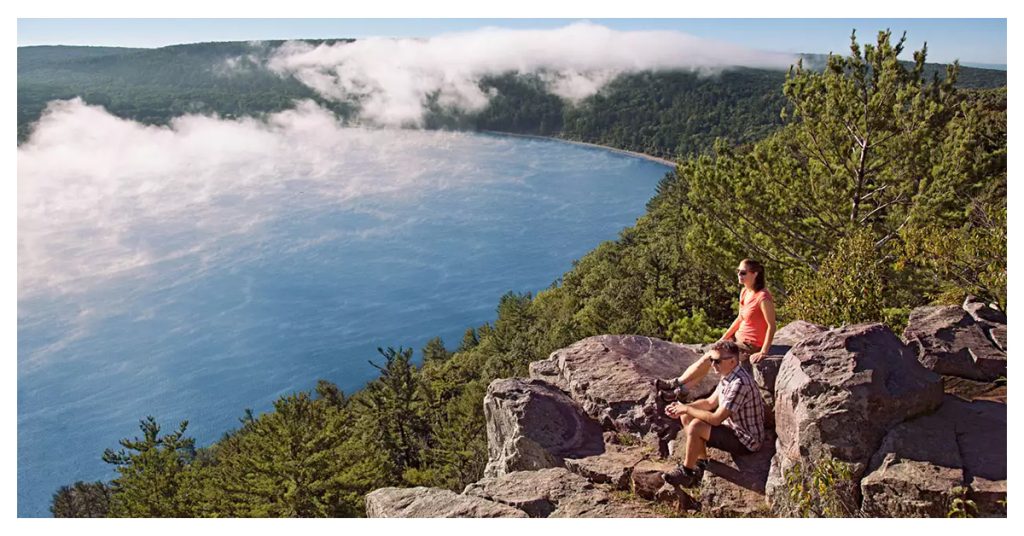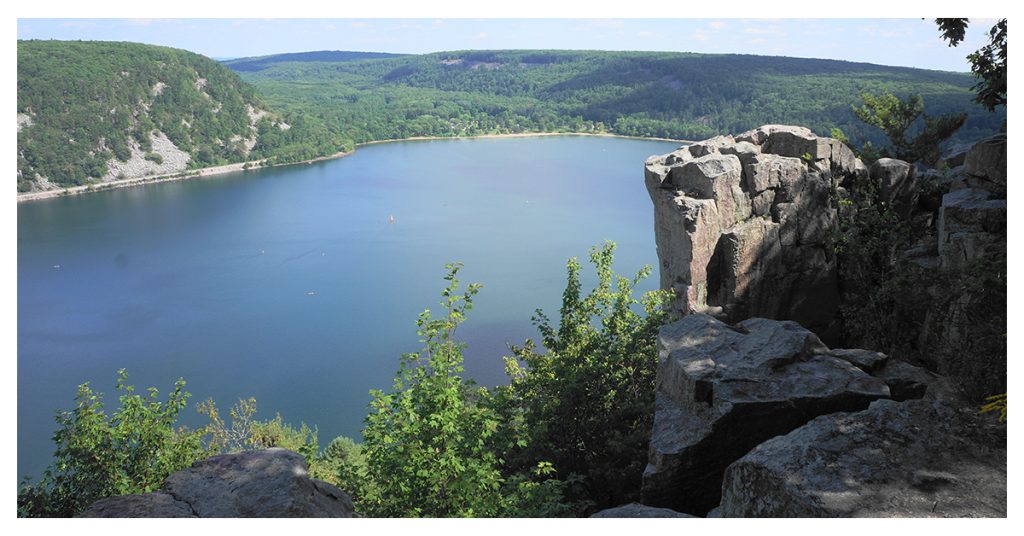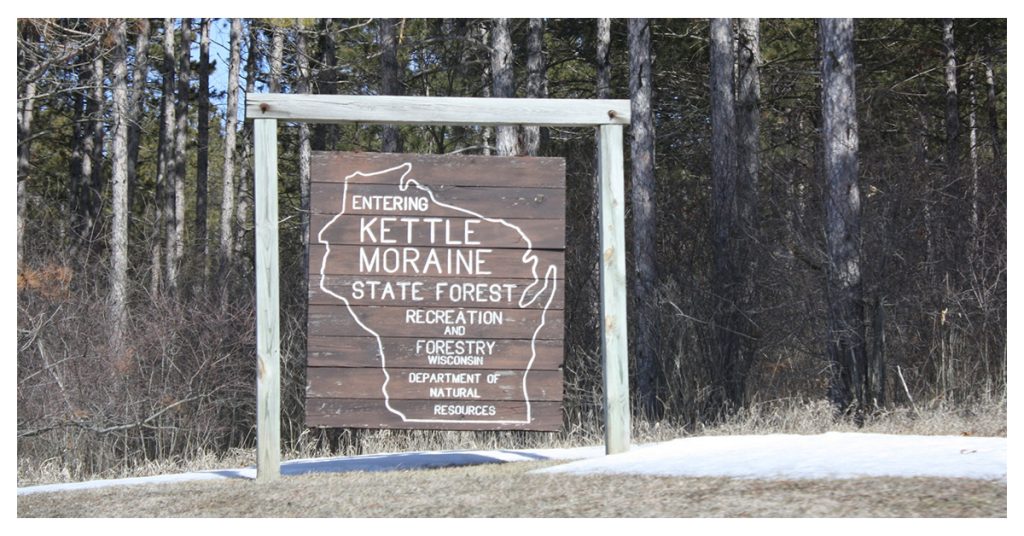If you’re new to hiking and looking for some great trails to start within Wisconsin, you’ve come to the right place. Wisconsin is full of scenic state parks, forests, and nature preserves perfect for every level of hiker. From easy lakeside paths to more challenging climbs, there are hikes suitable for every ability. Read on for tips and recommendations for the best hiking in Wisconsin for beginners.
1. Hiking in the Wisconsin Dells area

One of the best places to start hiking in Wisconsin is the scenic Wisconsin Dells area. This popular vacation destination is home to some nice easy hikes that are perfect when you’re just getting into hiking.
Hiking in Wisconsin Dells allows you to explore the unique rock formations and wooded valleys along the Wisconsin River.
Some good beginner-friendly trails here include the Dells of the Wisconsin River State Natural Area, which has a few short loop hikes of less than 2 miles, and the 1.5-mile hiking trail through Witches Gulch. These let you experience the beauty of the Dells without too much effort.
2. Devil’s Lake State Park

Another great spot for beginner hikes in Wisconsin is Devil’s Lake State Park near Baraboo. Not only that but also this is one of the best winter hikes in Wisconsin.
This park contains several trails ranging from easy to more difficult, so it’s a good place to start out and then work your way up.
Some of the easier hikes at Devil’s Lake include the 1-mile Nature Trail loop and the 1.7-mile East Bluff trail. These allow you to walk through prairie grasslands and enjoy panoramic views over Devil’s Lake from 500-foot quartzite bluffs at a comfortable pace.
As your hiking confidence grows, you can tackle more challenging trails like the West Bluff and Ice Age National Scenic Trail.
Read More – Exciting Things to Do in Cincinnati this Weekend – A 2-Day Travel Guide
3. Northern Highland-American Legion State Forest trails
If you’re looking for scenic hiking trails with mostly flat terrain, check out the Northern Highland-American Legion State Forest trails. Located in north central Wisconsin, this large state forest has over 90 miles of hiking trails perfect for every skill level.
Some nice and easy trails for beginners here include the 2-mile loop Browning Rock Nature Trail near Boulder Junction and the mile-long leg of the North Country National Scenic Trail near Manitowish Waters.
You can walk through peaceful pine and birch forests dotted with sparkling lakes and small meadows. These flat, well-marked trails let you focus on nature without worrying about climbing big hills.
4. Kettle Moraine State Forest

One last area with some classic Wisconsin hiking that’s great for beginners is Kettle Moraine State Forest. This forest offers over 100 miles of trails through rolling glacial terrain filled with kettles, potholes, and moraines.
For easy hiking, check out sections of the Ice Age National Scenic Trail which winds through the forest. The 1.8-mile segment between Eagle and Emma Carlin trailheads near Whitewater is relatively flat and passes by kettle lakes and small meadows.
As you get more experience under your belt, you can check out the Lapham Peak and Pike Lake units which have some moderate climbs. The scenery on these trails makes even short hikes feel special.
Gear and Safety Tips for Hiking in Wisconsin
When it comes to gear, you don’t need much to begin hiking in Wisconsin. Sturdy and comfortable hiking shoes or boots, water, snacks, lightweight clothing, sunscreen, and insect repellent will get you through most short day hikes.
Trekking poles can help take pressure off knees during descents. And, don’t forget your camera to capture all the natural beauty you’ll experience on Wisconsin’s hiking trails!
- Check the Weather
The weather in Wisconsin can change quickly, so check the forecast before your hike and prepare accordingly. In winter, paths may be snowy or icy so waterproof boots with good traction are a must. Spring and fall hikes require layers for changing temperatures. And in summer, prepare for sun and heat with proper hydration and sun protection. If there is extreme heat, cold, storms or high winds forecast, consider rescheduling your hike.
- Tell Someone Your Plans
Solo hiking as a beginner isn’t advised. Bring along a hiking buddy or tell someone your exact trail plans, what time you plan to be back, and your start/end point. Share your live location via phone. This way if an emergency arises, others can send help.
- Stay on Marked Trails
As a hiking novice, be sure to stay on the designated, marked hiking path at all times. Don’t wander or take shortcuts, which can lead to injuries, getting lost, or environmental damage. Follow all trail signs and stay aware of trail markers.


